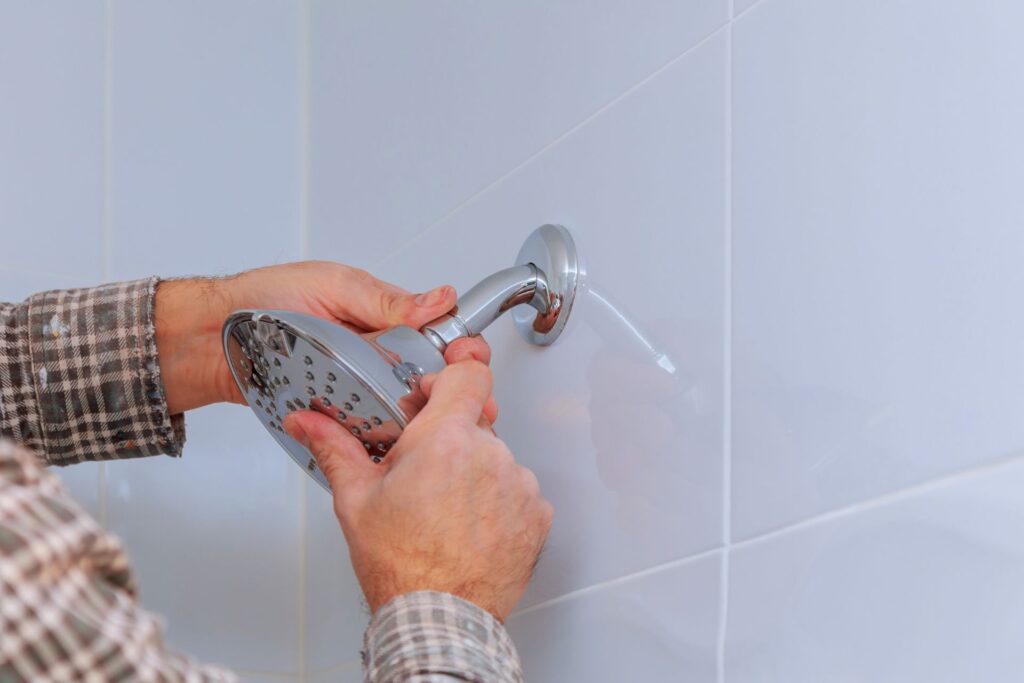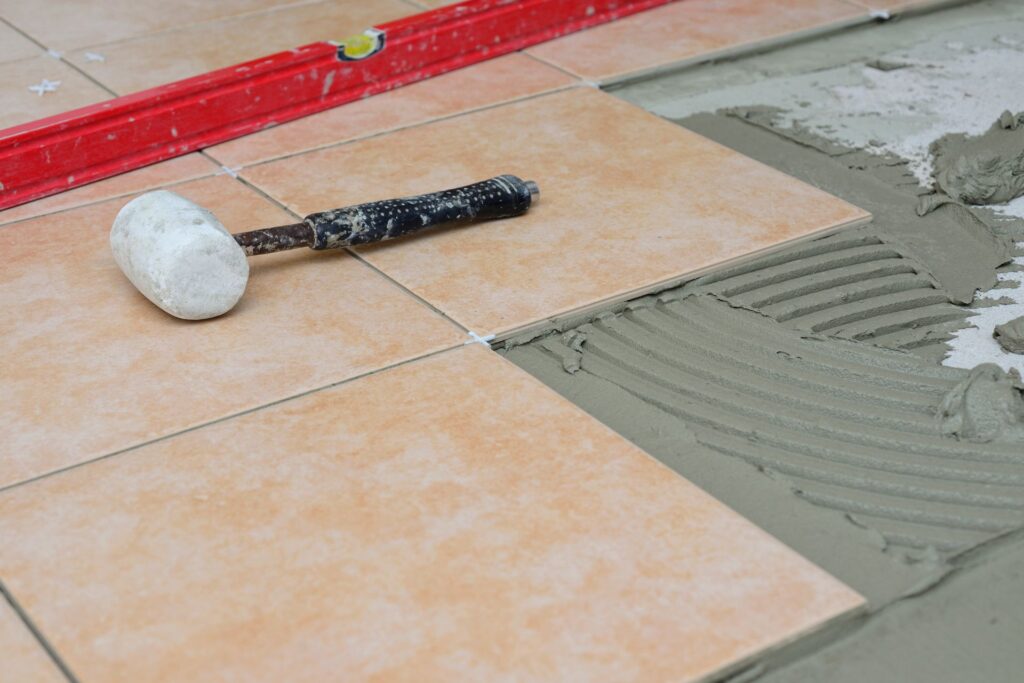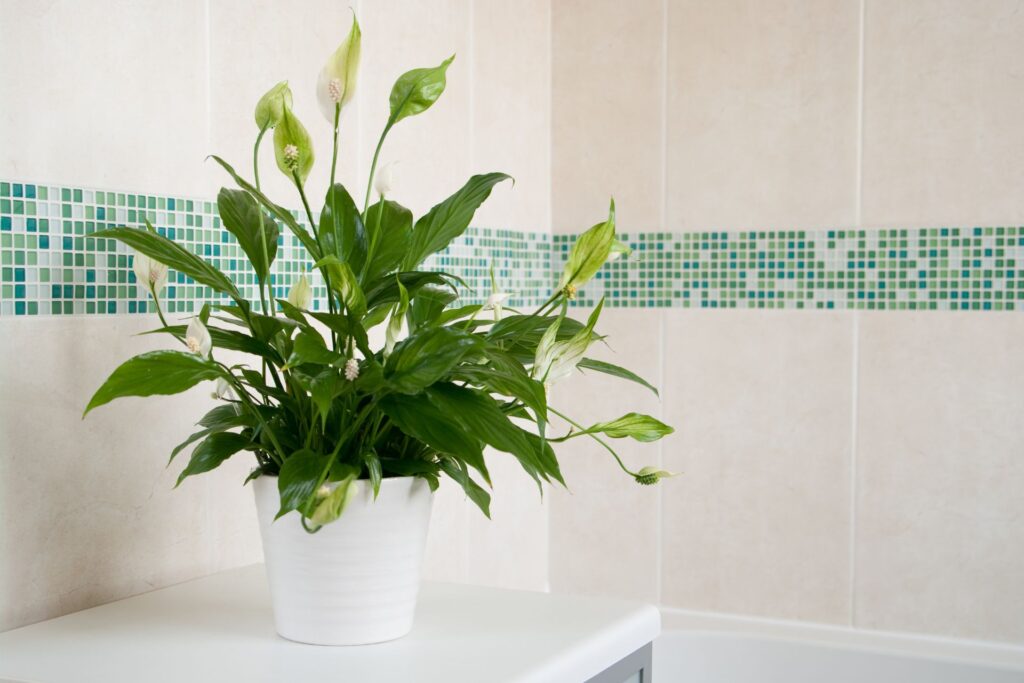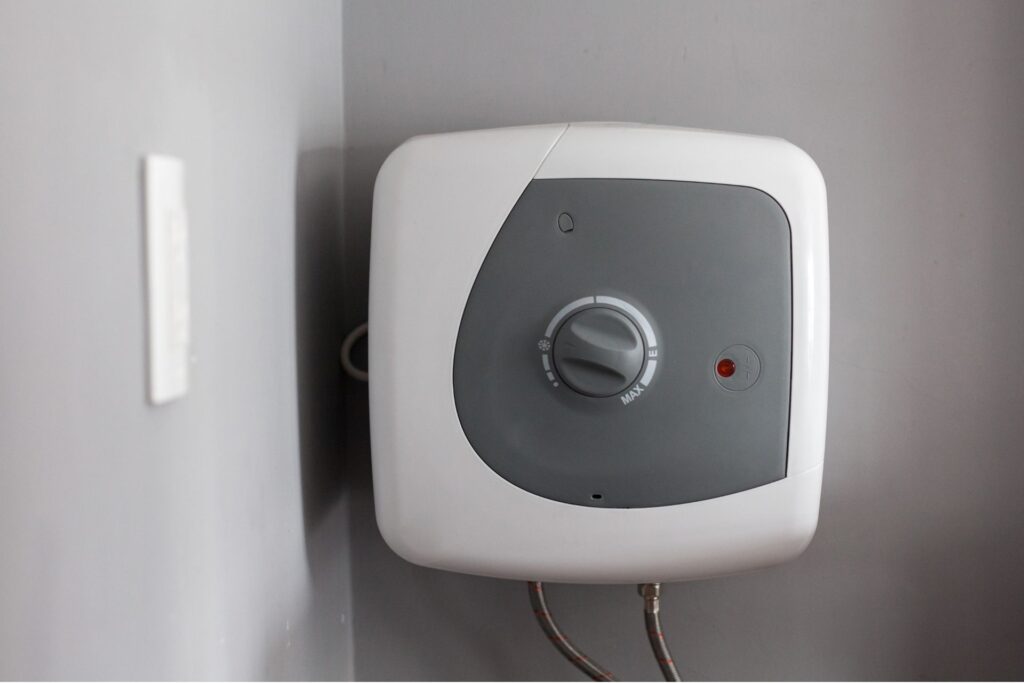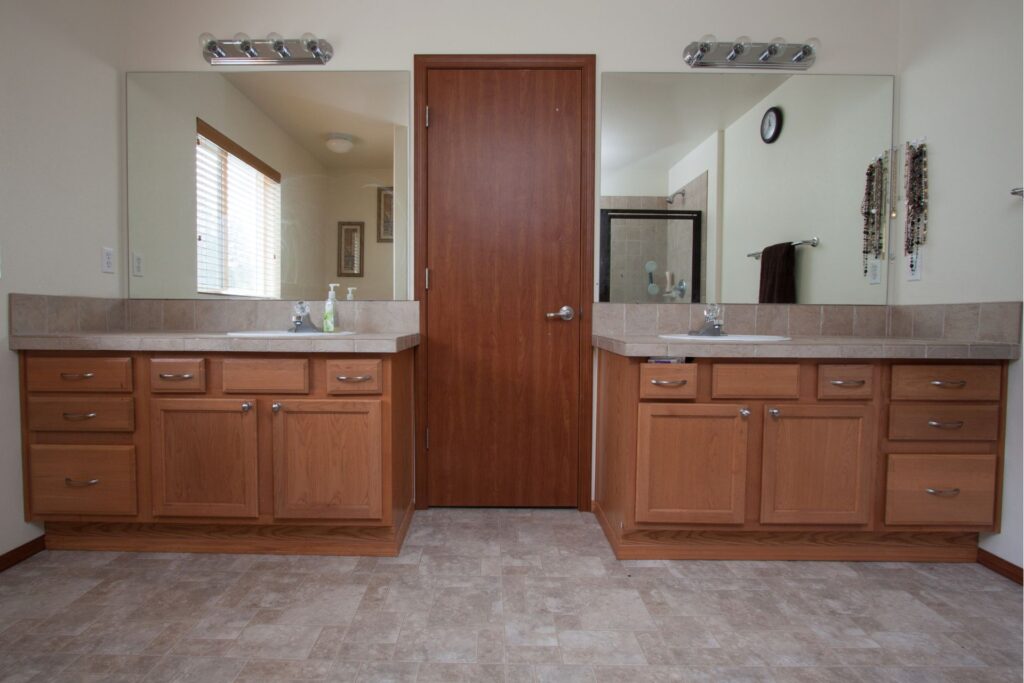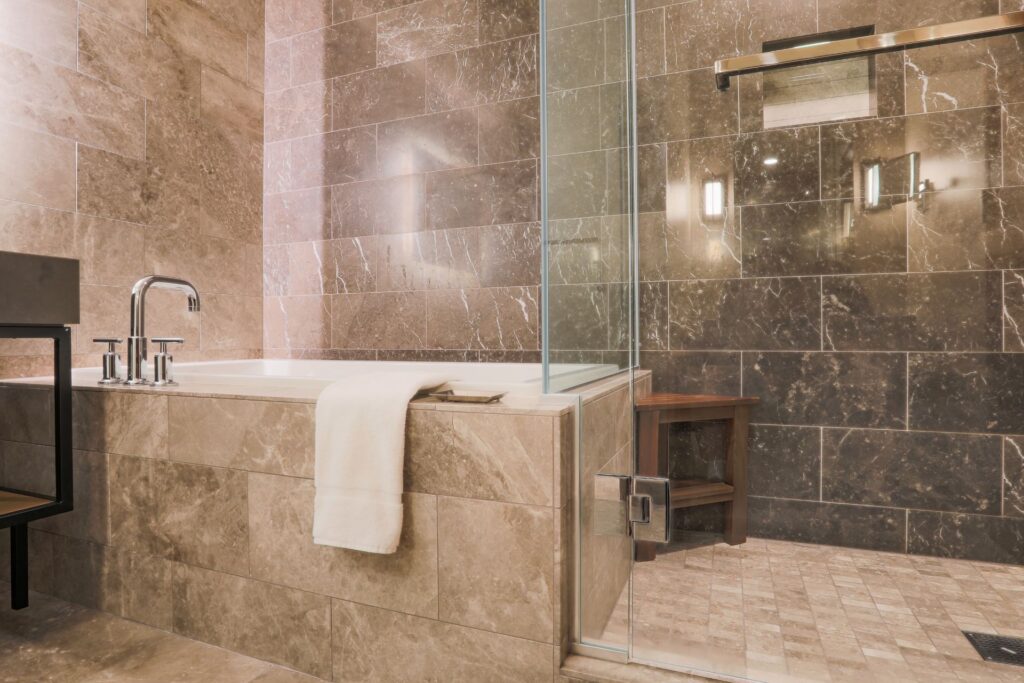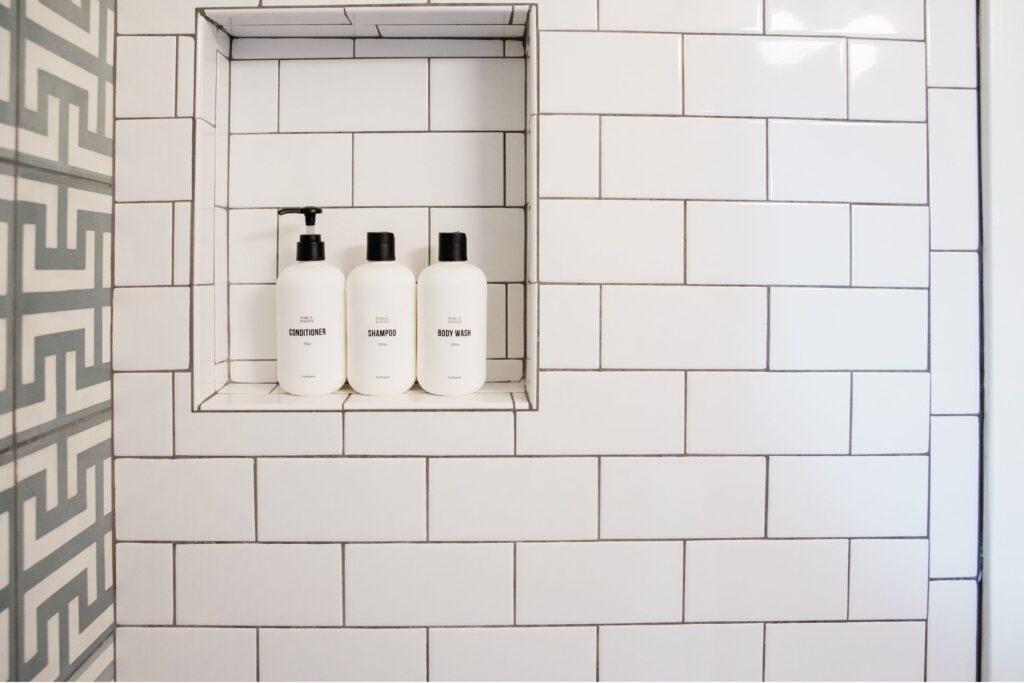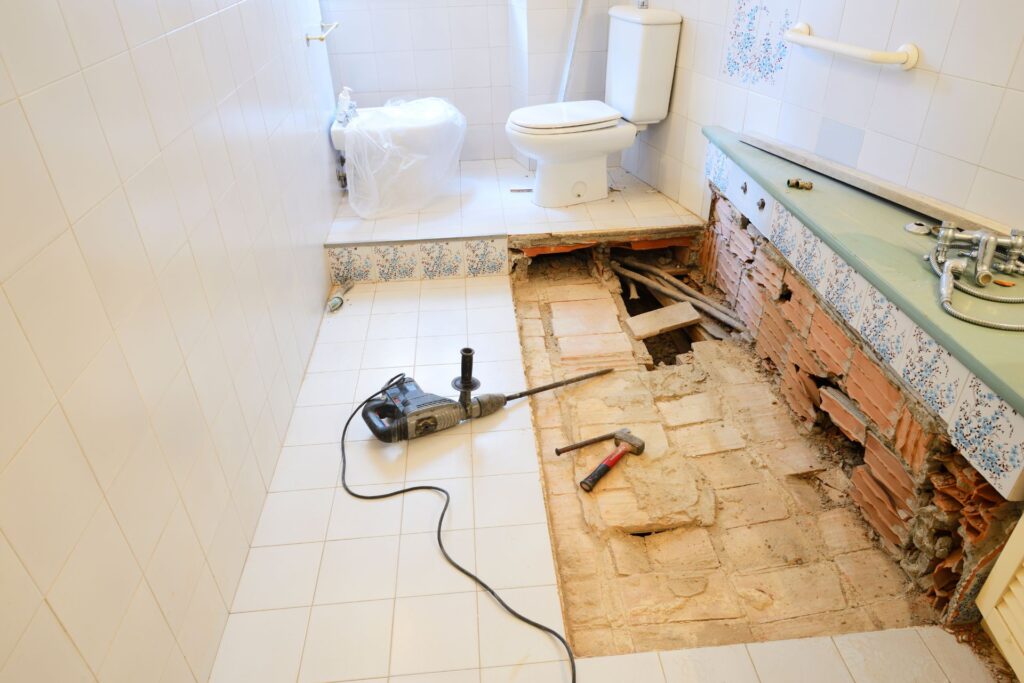Welcome to your ultimate guide on understanding the cost of shower installation in New Zealand. Whether you’re planning a simple bathroom refresh or a complete renovation, knowing the potential expenses involved can help you make informed decisions that balance both quality and budget. In this blog, we’ll break down everything you need to know about the costs associated with different types of showers, materials, labor, and even those hidden expenses that can catch you by surprise. Our goal is to provide you with clear, concise information to ensure your shower installation not only meets your needs but also adds lasting value to your home.
On average, the cost of shower installation in New Zealand ranges from $1,500 to $10,000, depending on factors like the type of shower, materials, labor, and location. Prefabricated units are typically more affordable, while custom tiled or walk-in showers can push the price higher. Be sure to account for additional costs such as plumbing adjustments, permits, and waste disposal to avoid surprises.
Table of Contents
Overview Of Shower Installation Costs In NZ
When planning a shower installation in New Zealand, it’s crucial to understand the potential costs involved. Whether you’re renovating an existing bathroom or building a new one, the cost can vary widely depending on several factors. This section provides a comprehensive overview of the expected costs, along with the key factors that influence the overall price.
General Cost Range
The cost of shower installation in New Zealand can range significantly based on your preferences and needs. Here’s a breakdown of what you can expect:
- Budget Option: If you’re looking for a cost-effective solution, a basic prefabricated shower unit typically ranges from $1,500 to $3,000. This option usually includes the shower unit, basic fixtures, and standard installation.
- Mid-Range Option: For those seeking a balance between quality and cost, a mid-range shower installation might range from $3,500 to $7,000. This could include a custom-tiled shower with higher-quality fixtures and finishes, offering more durability and aesthetic appeal.
- High-End Option: For luxury seekers, high-end shower installations can cost anywhere from $8,000 to $15,000 or more. These often feature top-of-the-line materials such as frameless glass, premium tiles, advanced water fixtures, and additional features like heated floors or digital controls.
Key Factors Affecting Cost
Several factors can influence the final price of your shower installation. Here’s a closer look at the primary elements:
- Shower Type: The type of shower you choose is a major determinant of cost. Prefabricated shower units are generally more affordable and quicker to install, making them a popular choice for budget-conscious homeowners. On the other hand, tiled showers or custom walk-in showers require more materials and labor, driving up costs. For instance, a custom walk-in shower with intricate tile work and frameless glass doors can significantly increase the overall expense.
- Materials: The choice of materials plays a crucial role in the final cost. High-quality materials like glass, natural stone, or premium tiles will naturally cost more than standard options like acrylic or ceramic tiles. Additionally, fixtures such as showerheads, taps, and valves can vary widely in price depending on their design and brand. Opting for eco-friendly or water-saving fixtures may also influence the cost, though they could lead to savings in the long term.
- Labor Costs: Labor is another significant factor, and it varies depending on the complexity of the installation and the region. For example, labor costs in larger cities like Auckland or Wellington might be higher due to the increased demand for skilled tradespeople. Additionally, installations that involve plumbing modifications, waterproofing, or custom work will require more time and expertise, thereby increasing labor costs.
Comparison with International Costs
When compared to similar countries like Australia, shower installation costs in New Zealand are generally on par, though some regional differences exist. For instance, while the average cost in New Zealand for a mid-range installation is around $5,000 to $7,000, similar projects in Australia might be slightly higher due to differences in labor rates and material costs. However, the cost disparity is typically minimal, making New Zealand a competitive market for both budget and luxury shower installations.
In conclusion, understanding the various factors that affect shower installation costs in New Zealand can help you make informed decisions that align with your budget and desired outcome. Whether you’re opting for a basic setup or a luxurious spa-like shower, being aware of the costs involved and planning accordingly will ensure a smoother renovation process.

Breakdown Of Key Cost Factors
When planning a shower installation in New Zealand, understanding the various cost factors involved is essential. The expenses can vary significantly depending on the type of shower, the materials and fixtures you choose, and the labor costs associated with the installation. Below is a detailed breakdown of these key cost factors to help you make an informed decision.
Shower Types and Their Costs
Choosing the right type of shower is one of the first decisions you’ll make, and it can have a big impact on both the initial and ongoing costs. Here are the most common shower types in New Zealand:
Prefabricated Showers
Prefabricated showers are the most budget-friendly option, with costs typically ranging from $800 to $2,500, depending on the size and quality. These showers come as complete kits that include the base, walls, and doors, making them quick and easy to install. Prefabricated showers are ideal for those looking for a cost-effective solution with minimal installation hassle. The primary benefits include reduced labor costs and faster installation time. However, they offer less flexibility in terms of design and customization.
Custom Tiled Showers
Custom tiled showers are more expensive but offer unparalleled design flexibility. Costs can range from $5,000 to $15,000 or more, depending on the materials, size, and complexity of the design. The higher cost is largely due to the labor-intensive installation process, which requires skilled tilers and often involves waterproofing and intricate tile work. Custom tiled showers allow you to choose specific tiles, colors, and layouts, making them a popular choice for homeowners looking to add a personal touch to their bathrooms. However, this option requires more time and planning.
Walk-In Showers
Walk-in showers have grown in popularity due to their sleek, modern design and accessibility features. Costs generally range from $3,000 to $10,000, depending on the materials and design. Walk-in showers are ideal for people of all ages, offering easy access without the need for doors or high thresholds. The cost implications are higher due to the need for custom glass panels and drainage solutions. These showers are a great investment for those looking to future-proof their bathrooms or simply enjoy a contemporary look.
Materials and Fixtures
The choice of materials and fixtures plays a crucial role in determining the overall cost of your shower installation. Here’s a closer look at some of the key materials and fixtures involved:
Tiles
Tiles are a significant component in custom showers. The cost per square meter can vary widely, from as low as $30 for basic ceramic tiles to over $150 for premium options like natural stone. The installation costs also vary depending on the complexity of the pattern and the type of tiles chosen. For example, mosaic tiles may require more time and precision, increasing both material and labor costs. Consider the balance between aesthetics and budget when selecting tiles.
Showerheads and Faucets
The choice of showerheads and faucets can also impact your budget. Basic models can be found for as low as $50, but high-quality or designer fixtures can range from $300 to $1,000. Consider investing in water-saving features, such as low-flow showerheads, which can reduce long-term water bills. The right choice of showerhead and faucet can elevate the showering experience while also aligning with your budget.
Glass Enclosures
Glass enclosures are a key element in many modern showers. The cost varies depending on the type of glass, with standard glass being the most affordable, ranging from $800 to $1,500. Frameless or frosted glass enclosures, which offer a more premium look, can range from $1,500 to $3,000. Installation can be challenging and often requires professional help, adding to the overall expense. The choice of glass can significantly impact both the aesthetics and cost of your shower.
Labor Costs
Labor costs are a significant factor in any shower installation project. Here’s what to consider when budgeting for labor:
Plumber and Builder Fees
The cost of hiring a plumber or builder in New Zealand varies by region, with hourly rates typically ranging from $80 to $120. For a full shower installation, labor costs can quickly add up, especially if extensive plumbing work is required. The fees may differ based on the complexity of the job and the professional’s experience level. In regions like Auckland and Wellington, expect to pay on the higher end of the scale due to higher demand.
Electrician Costs
If your shower installation involves electrical work, such as installing lighting, heated towel rails, or ventilation fans, you’ll need to factor in the cost of an electrician. Hourly rates for electricians in NZ generally range from $90 to $140. Proper electrical work is crucial for safety and compliance with local regulations, so it’s worth investing in a qualified professional.
Regional Variation
It’s important to note that labor costs can vary significantly between major cities and smaller towns. For instance, shower installation in Auckland or Wellington may be more expensive due to higher demand for tradespeople. In contrast, smaller towns may offer more competitive rates, but availability could be limited. Understanding these regional variations can help you budget more accurately and possibly save on costs by planning ahead.
Breaking down the key cost factors involved in shower installation in New Zealand helps clarify where your money will go. From selecting the right type of shower to choosing quality materials and accounting for labor costs, every decision impacts your overall budget. By understanding these factors, you can make informed choices that align with your needs and financial plan, ensuring your new shower is both functional and cost-effective.
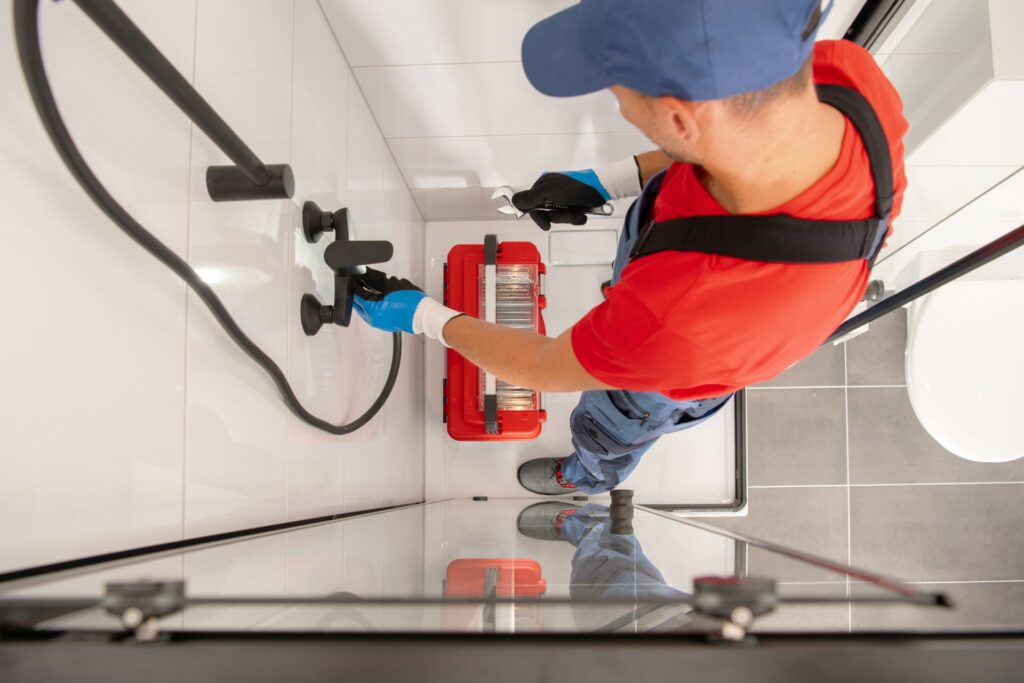
Hidden Costs And Potential Surprises
When planning a shower installation in New Zealand, it’s easy to focus on the main costs, like the price of materials and labor. However, hidden expenses can sneak up and significantly impact your budget. Understanding these potential surprises can help you prepare financially and avoid nasty shocks down the road.
Unexpected Expenses
1. Structural Issues
Sometimes, during a renovation, you uncover deeper problems that weren’t visible initially. Structural issues like water damage or mold are common culprits. If your bathroom has been exposed to moisture over time, there may be underlying damage to the walls or flooring that requires repair. Addressing these issues can be costly, as it may involve replacing drywall, reinforcing beams, or even redoing the waterproofing. These repairs are crucial, though, to ensure that your new shower installation lasts and doesn’t suffer from the same problems.
2. Compliance and Permits
In New Zealand, bathroom renovations often require compliance with local council regulations. Depending on the scope of your project, you might need permits, especially if you’re making significant changes to the plumbing or layout. These permits come with fees that vary by region, and failing to obtain them can lead to fines or forced alterations. Compliance isn’t just a bureaucratic hurdle—it’s essential for ensuring that your installation meets safety standards, which can also affect your home’s resale value.
3. Plumbing Adjustments
If your new shower design requires repositioning the plumbing or upgrading old pipes, be prepared for additional costs. Plumbing adjustments can quickly become expensive, particularly if your home’s existing system is outdated or if the changes are extensive. For instance, shifting the shower to a different wall or converting from a standard shower to a wet room might necessitate significant modifications. These adjustments are often unavoidable but can be mitigated by careful planning and consulting with a professional early on.
4. Waste Disposal
Renovations generate a surprising amount of waste, from old tiles and fixtures to packaging from new materials. In New Zealand, waste disposal isn’t always included in the standard renovation quote, meaning you may need to budget for it separately. Depending on the amount of debris, hiring a skip bin or arranging for a specialized waste removal service could add a few hundred dollars to your project costs. Proper disposal is important for both environmental reasons and to avoid council fines for improper waste management.
Examples: Real-Life Scenarios
To illustrate how these hidden costs can affect your budget, consider a recent renovation in Auckland where a homeowner planned to install a new shower. Initially, they budgeted $10,000 for the entire project. However, during the demolition, significant water damage was discovered behind the existing shower walls, leading to an extra $3,000 in structural repairs. Additionally, the local council required a building consent for the changes to the plumbing layout, which added another $800 in fees. By the time the project was completed, the final cost had ballooned to $14,000—40% more than originally planned.
Another case in Wellington involved an older home where the plumbing had to be upgraded to meet current standards. The homeowner anticipated some adjustments but was surprised by the extent of the necessary work. The final bill for plumbing modifications alone came to $4,000, far beyond their initial estimate. Fortunately, they had left some buffer in their budget, but it’s a perfect example of why you should plan for the unexpected.
When budgeting for a shower installation, it’s essential to account for these hidden costs. By understanding potential surprises, such as structural issues, compliance requirements, plumbing adjustments, and waste disposal, you can better prepare and avoid financial stress. Real-life examples show that these expenses can significantly impact the final bill, emphasizing the importance of thorough planning and budgeting.

Tips To Save On Shower Installation Costs
When it comes to installing a new shower, costs can quickly add up. However, with some strategic planning and smart choices, you can significantly reduce expenses without sacrificing quality or style. This section provides practical tips to help you save on shower installation costs, focusing on material selection, deciding between DIY and professional help, and effective budgeting.
Smart Material Choices
Budget-Friendly Options
Choosing the right materials is one of the most effective ways to control costs. Affordable yet durable options like ceramic tiles, basic shower fixtures, and standard enclosures can keep your expenses in check without compromising the overall look of your bathroom. Ceramic tiles, for example, offer a wide range of designs and colors at a fraction of the cost of premium materials like marble or granite. Similarly, opting for standard fixtures instead of high-end designer brands can provide a clean, functional aesthetic while keeping your budget intact.
Mix and Match
If you desire a touch of luxury without breaking the bank, consider mixing high-end materials with more cost-effective options. For instance, you could splurge on a statement showerhead while choosing more affordable tiles or use a few high-quality accent tiles combined with standard ones. This approach allows you to achieve a stylish, custom look that reflects your taste without exceeding your budget. By thoughtfully blending materials, you can elevate your bathroom’s appearance while keeping costs manageable.
DIY vs. Hiring Professionals
When DIY Makes Sense
Taking on some of the installation tasks yourself can lead to significant savings. For straightforward jobs like replacing existing fixtures, installing a prefabricated shower unit, or handling minor cosmetic upgrades, DIY can be a practical option. These tasks often require basic tools and skills, making them accessible for many homeowners. Additionally, DIY projects give you control over the timeline and allow for a more personalized approach. However, it’s essential to be realistic about your skills and limitations to avoid costly mistakes.
When to Hire a Pro
For more complex installations, especially those involving custom designs, plumbing adjustments, or compliance with New Zealand building codes, hiring a professional is the safer and more reliable choice. A licensed plumber or contractor can ensure the job is done correctly and to code, preventing potential issues down the line. While professional services may seem more expensive upfront, they often save money in the long run by avoiding errors that could lead to costly repairs. Investing in professional expertise for these intricate aspects of the project is usually worth the added cost.
Planning and Budgeting
Getting Multiple Quotes
Before committing to any contractor or purchasing materials, it’s crucial to shop around. Requesting multiple quotes allows you to compare prices and services, giving you a clearer picture of what’s fair and reasonable. Some contractors may offer package deals that include materials and labor, which could be more economical than purchasing each component separately. Be sure to check for any hidden fees or additional costs that may not be immediately apparent in the initial quote. Taking the time to research and compare will ensure you get the best value for your money.
Planning for Contingencies
Even with meticulous planning, unexpected costs can arise during a shower installation. Structural issues, plumbing surprises, or changes in design can quickly increase expenses. To avoid financial strain, it’s wise to set aside a contingency budget, typically around 10-15% of the total project cost. This reserve fund will help you cover any unplanned expenses without derailing your budget. By preparing for the unexpected, you can approach your project with confidence, knowing you have a financial cushion in place.
By making smart material choices, knowing when to DIY and when to hire a professional, and planning your budget carefully, you can achieve a high-quality shower installation that fits your financial goals. With these tips, you’ll be well on your way to creating a beautiful, functional bathroom without overspending.
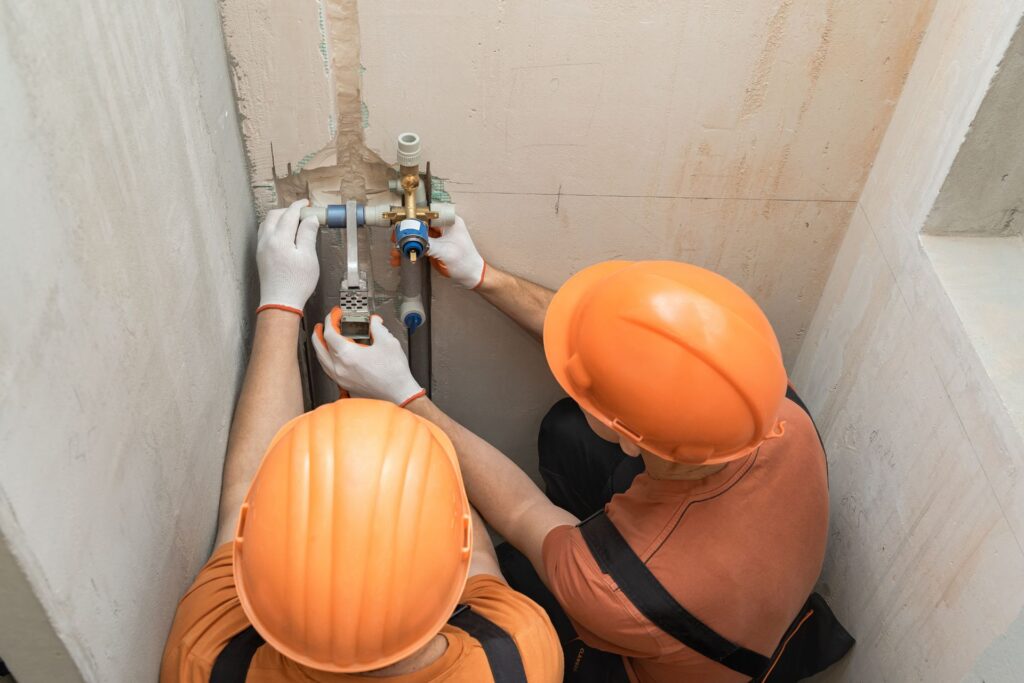
Case Studies And Real-Life Examples
When planning a shower installation, understanding real-life examples can provide valuable insights into managing costs and expectations. Below are three case studies from different regions in New Zealand, each highlighting the scope of work, materials used, and cost management strategies. These examples showcase the variability in costs based on the type of project, helping you make informed decisions for your shower installation.
Case Study 1: Budget Shower Installation in Auckland
Scope of Work
This project involved a simple shower installation in a small Auckland bathroom. The homeowner opted for a pre-fabricated shower unit to keep costs low. The materials included a basic acrylic shower tray, glass doors, and standard plumbing fixtures. Labor was hired for installation, including plumbing and waterproofing, with minimal customization to avoid extra expenses.
Total Cost
The final cost of the project was around $3,000, broken down as follows:
- Materials: $1,200 (including shower tray, doors, and fixtures)
- Labor: $1,500 (plumbing, waterproofing, and installation)
- Miscellaneous: $300 (permits and waste disposal)
By choosing budget-friendly materials and a pre-fabricated unit, the homeowner managed to keep costs under control. Effective planning and clear communication with the contractors also helped avoid any unexpected expenses.
Case Study 2: Mid-Range Shower Upgrade in Wellington
Scope of Work
For this mid-range project in Wellington, the homeowner decided to upgrade their existing shower. The scope included replacing the old tiles with new ceramic ones, installing a semi-frameless glass door, and upgrading the showerhead to a modern, water-efficient model. Customization was minimal, focusing on aesthetic and functional improvements without breaking the bank.
Lessons Learned
The total cost for this project was approximately $7,500, including:
- Materials: $3,000 (tiles, showerhead, and glass door)
- Labor: $4,000 (tiling, plumbing, and installation)
- Miscellaneous: $500 (permits and waste disposal)
The homeowner learned valuable lessons about managing costs during this project. By prioritizing high-impact upgrades, they avoided overspending. Additionally, sourcing materials locally and comparing quotes from multiple contractors helped achieve the best value for their budget.
Case Study 3: Luxury Shower Renovation in Queenstown
Scope of Work
In Queenstown, a luxury shower renovation was part of a larger bathroom overhaul. The project involved high-end materials such as marble tiles, a frameless glass enclosure, and a custom rain shower system with LED lighting. The homeowner wanted a spa-like experience, which required significant customization, including a built-in bench and a digital control system for temperature and lighting.
Final Cost
The total cost for this luxury renovation reached $25,000, broken down as follows:
- Materials: $12,000 (marble tiles, custom glass, and high-end fixtures)
- Labor: $10,000 (installation, plumbing, and electrical work)
- Miscellaneous: $3,000 (permits, design consultation, and waste disposal)
Despite an initial budget of $20,000, the project went over by $5,000 due to the complexity of the custom features and unforeseen challenges during installation. This case study highlights the importance of factoring in a contingency budget for high-end renovations and working closely with contractors to manage expectations and costs.
These case studies illustrate how shower installation costs can vary widely depending on the project’s scope, materials, and location. Whether you’re aiming for a budget installation or a luxury renovation, careful planning, and cost management are key to achieving the desired results without overspending.
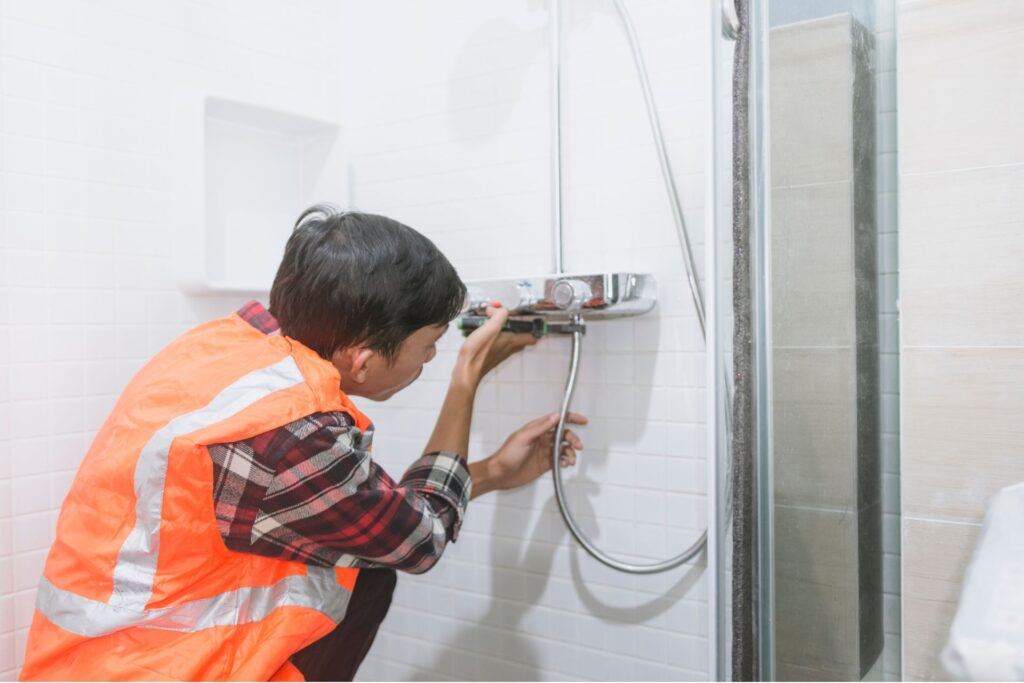
Maximizing The Return On Investment (ROI)
Investing in a quality shower installation can do more than just enhance your daily comfort—it can also add significant value to your home. In the context of New Zealand’s housing market, where buyers are increasingly discerning, a well-executed bathroom upgrade, particularly a modern shower installation, can be a key factor in boosting your property’s resale value. Let’s break down how a strategic investment in your bathroom can pay off in the long run.
Impact on Home Value
A well-designed and functional shower is a critical feature for many homebuyers. In New Zealand, where lifestyle and home comfort are prioritized, a stylish and efficient shower can significantly enhance your home’s appeal. A high-quality shower installation, especially one that incorporates modern design elements, can make your bathroom a standout feature, thereby increasing the overall market value of your home. Homes with updated bathrooms tend to sell faster and at higher prices, as buyers are often willing to pay a premium for properties that require little to no renovation.
In fact, industry reports suggest that a bathroom renovation, including a new shower, can return as much as 70-80% of the initial investment upon resale. This makes it one of the most cost-effective home improvements you can undertake. The key to maximizing this return is ensuring that your shower installation aligns with both current trends and long-term durability.
Current Trends in Bathroom Design
Staying ahead of design trends can make your bathroom not only a functional space but also a conversation starter. In New Zealand, two major trends are reshaping how homeowners approach bathroom renovations: sustainability and technology.
- Sustainability: With an increasing focus on eco-friendly living, sustainable bathroom fixtures are becoming more popular. Opting for water-saving showerheads, low-flow faucets, and sustainable materials can not only reduce your environmental footprint but also appeal to eco-conscious buyers. Features like these not only lower utility bills but also align with the growing demand for green homes, which can be a significant selling point in the NZ property market.
- Technology: The rise of smart homes has extended into bathrooms, with features like digital shower controls, thermostatic valves, and luxury additions such as steam showers and multi-spray systems. Smart showers, which allow users to control water temperature and flow via a smartphone app or voice commands, are particularly attractive to tech-savvy buyers. Integrating such features can set your bathroom apart from others on the market, adding a modern touch that can increase your home’s value.
Long-Term Benefits
Investing in quality materials and fixtures for your shower installation can offer long-term benefits that go beyond the initial cost. Durable materials like ceramic tiles, tempered glass, and stainless-steel fixtures not only withstand daily wear and tear but also require minimal maintenance. This durability means fewer repairs and replacements over time, saving you money in the long run.
Moreover, energy-efficient fixtures can contribute to lower utility bills. For instance, water-saving showerheads and insulated shower units can reduce water and energy consumption, leading to significant cost savings over time. These features not only appeal to eco-conscious buyers but also enhance the overall marketability of your home.
In summary, a well-planned shower installation can offer both immediate enjoyment and long-term financial benefits. By focusing on quality, sustainability, and modern technology, you can ensure that your investment adds value to your home, enhances your lifestyle, and appeals to future buyers—ultimately maximizing your return on investment.
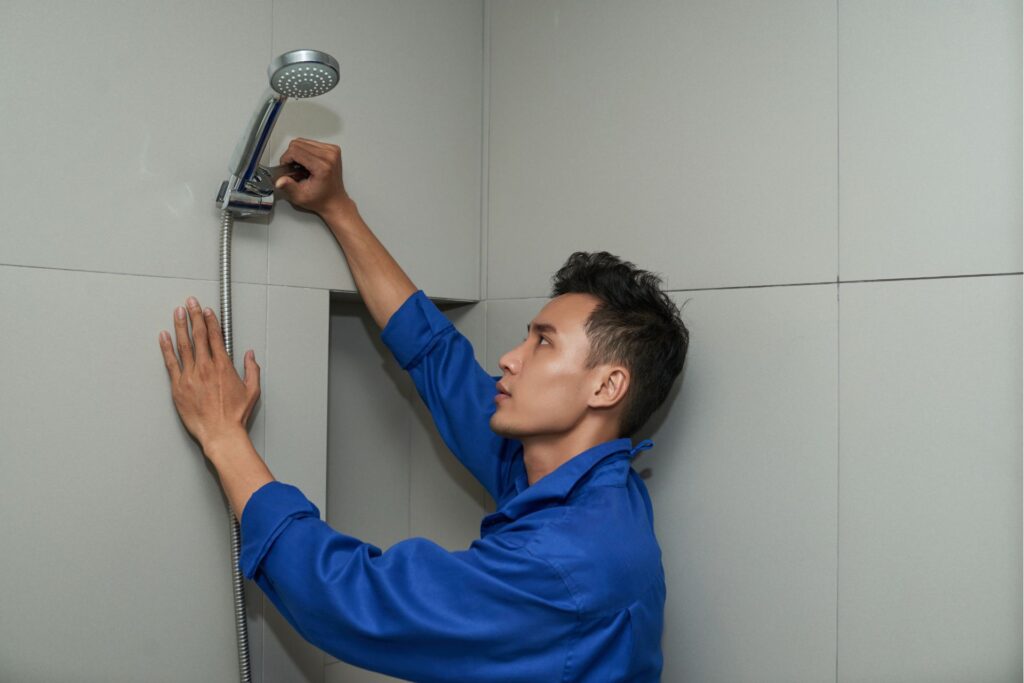
FAQs: About Cost Of Shower Installation NZ
What is the average cost of shower installation in New Zealand?
On average, shower installation in New Zealand costs between $1,500 and $10,000. The final price depends on factors such as the type of shower, materials used, labor costs, and regional differences.
What factors affect the cost of shower installation?
The main factors affecting the cost include the type of shower (prefabricated, tiled, walk-in), the quality of materials (tiles, glass, fixtures), labor charges, plumbing adjustments, and any necessary permits or compliance fees.
How much does a prefabricated shower cost compared to a custom tiled shower?
Prefabricated showers are generally more affordable, ranging from $1,500 to $3,500. In contrast, custom tiled showers can range from $5,000 to $10,000 or more, depending on the complexity of the design and materials chosen.
Are there any hidden costs I should be aware of when installing a shower?
Yes, hidden costs can include structural repairs, plumbing adjustments, compliance permits, and waste disposal fees. It’s crucial to budget for these potential expenses to avoid surprises.
How do labor costs vary across New Zealand?
Labor costs can vary significantly based on location. Major cities like Auckland, Wellington, and Christchurch tend to have higher labor rates compared to smaller towns and rural areas.
Is it cheaper to install a shower myself or hire a professional?
While DIY installation can save money, it’s often recommended to hire a professional for complex installations, custom designs, or to ensure compliance with NZ building codes. DIY is best suited for simpler tasks, like replacing fixtures.
What are some tips to save on shower installation costs?
To save on costs, consider budget-friendly materials, mixing high-end and economical options, getting multiple quotes from contractors, and planning for contingencies to cover unexpected expenses.
How can a new shower installation increase the value of my home?
A well-designed, high-quality shower installation can significantly boost your home’s value, particularly if it aligns with current trends like eco-friendly designs and smart technology. A modern, stylish bathroom is a strong selling point for potential buyers.
What should I consider when choosing materials for my shower?
When choosing materials, consider factors like durability, maintenance, and aesthetics. Tiles, glass, and fixtures should not only match your style but also fit within your budget and offer long-term value.
What are the most common types of showers installed in New Zealand homes?
The most common types of showers in New Zealand homes include prefabricated shower units, custom tiled showers, and walk-in showers. Each type offers different benefits in terms of cost, design flexibility, and ease of installation.
Conclusion
In conclusion, planning and budgeting are essential when it comes to shower installation, as they ensure you achieve the best results within your means. By carefully considering the key points discussed, such as the various cost factors, potential hidden expenses, and tips for saving money, you can make informed decisions that balance quality with affordability. This balance is crucial not only for your immediate satisfaction but also for the long-term value and enjoyment your new shower will bring to your home. As you move forward, consider exploring additional resources to deepen your understanding, getting quotes from local professionals to compare costs, and consulting with experts for personalized advice tailored to your specific needs. This proactive approach will help you navigate the complexities of shower installation with confidence and clarity.
About the Author:
Mike Veail is a recognized digital marketing expert with over 6 years of experience in helping tradespeople and small businesses thrive online. A former quantity surveyor, Mike combines deep industry knowledge with hands-on expertise in SEO and Google Ads. His marketing strategies are tailored to the specific needs of the trades sector, helping businesses increase visibility and generate more leads through proven, ethical methods.
Mike has successfully partnered with numerous companies, establishing a track record of delivering measurable results. His work has been featured across various platforms that showcase his expertise in lead generation and online marketing for the trades sector.
Learn more about Mike's experience and services at https://theleadguy.online or follow him on social media:
